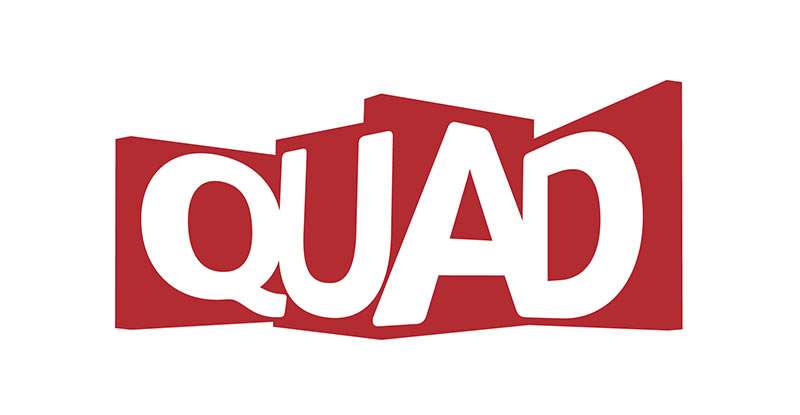Partners




Adam Pugh is a writer and designer based in Newcastle upon Tyne, where he also runs Projections, the artist programme at Tyneside Cinema.
Do we need work, or does it need us? The changing face of labour in the last few decades - towards automation, atomisation, autonomy - has, as all four of these films uncover, twisted even its own etymology. Here, dancing around between distribution hubs and foreclosed town centres, attentive companionship and relics of resistance is the word fulfilment. Does it describe carrying out a process, or does it entail realisation, contentment, self-actualisation? Perhaps in this word is the kernel of how we think about work, and what it thinks about us.
Here in the Midlands is England’s centre, its towns once central to England’s economic might, its fields of coal and wheat helping to power and feed the nation. How English the Arcadian fields in The Great Bear and a ROLE to PLAY; no lachrymose troubadour more English than John Dowland, a refrain from whose Flow My Tears recurs plaintively in Esther Johnson’s film. And so English, this contradictory country that has both welcomed and spat out its immigrants, flirted with the far right and campaigned for social justice, as People Meeting in a Room describes.
Adam Lewis-Jacob’s detour through community video from the Trade Union Resource Centre archive, overseen by Steve Bell’s anarcho-penguin - now a victim, now a neoliberal fat cat - pinpoints the spectre that hangs over all four films in WORK: that of Margaret Thatcher, and of the ground she prepared for the beginning of the end. But just as the union-busting, profiteering, privatising and short selling presaged by those formative years of deregulation and divestment of public assets is here, so are the demos, the grassroots activism, lone figures standing up and serried ranks resisting.
By contrast, a ROLE to PLAY begins with a read-through, a preparation: the work carried out before the work begins. A play entails producing work; here it’s work about work, and this all seems apposite. For some, work is a world determined as though by a script; for others a constant rehearsal which never reaches the stage. In Bolsover, the show is over and the title of the next production is not yet clear. Between the opulent interiors of the castle and the foreclosed shops and vacant lots of the town centre, this place, built on coal, has its fair share of problems, not least the fact that a majority of its population has opted for self-immolation at the hands of a Tory MP. But perhaps the problem, between the jobs that have gone and those that have mutated, is that for left and right alike to characterise Bolsover, true blue for the first time since the seat was created in 1950, as an ‘ex-mining town’ is missing the point, or rather, preserving it in perpetual decline by describing what it was rather than is. A current warehousing town, a gig economy town; a town with no Beast anymore, but a Conservative who is the ‘grandson of a miner.’
Sometimes it’s relatively simple. All the carer and the cared-for in Dryden Goodwin’s Alongside need, to be as effective as possible - for the carer, this means caring, for the cared-for, safety and independence - is proper resources. The local is enmeshed in the national, and politics affects all. The Englishism of not talking about politics is self-abnegation. In frontline services, in shuttered town centres on the wrong end of a parasitic relationship with US multinationals, everything is political, or should be. And, as Jenny Holt’s The Great Bear hints even in its title, this continues even in its bucolic, fully Barboured rural heart, where mechanisation and global supply chains wrestle the last of nature onto a conveyor belt. Its empty scenes of street-lamp glare on verdant trees, and combine harvester headlamps sweeping twilit fields, conjure a world of work in the semi-rural and extra-urban, these new zones in which crouch the great sheds of distribution and fulfilment.
Thatcher is here. But it isn’t the 1980s anymore, and that decade seems an unlikely source of inspiration for solidarity in the 2020s: unionism was being dismantled already, heavy industry stripped, public services sold off. The 80s were the beginning of the end. Just as the construction of the ‘former mining town’ no longer scans, neither will the resistances of the 80s confront the inequalities of the 20s. Our landscape of food and child poverty, insecure and effectively unregulated housing, and a precarity of employment, more resembles the turn of the last century than its final decades.
There are of course different routes through this. One is to submit and accept our fate; another is to fight - for union recognition, for decent jobs, for proper contracts - and yet another is to reject and refuse.
To force the Amazons and Hermeses into a more just employment is to legitimise them further, and in so doing willingly contribute to the dissolution of labour as we know it and the primacy of and acknowledge the need for fulfilment centres and distribution depots and self-employed couriers. Reform is not in itself a progressive force. Where in the past, it came to schools, workhouses, the legal system, it was to create more equitable public institutions; to improve those systems upon which everyone depended. The problem is, we don’t need Amazon, and we don’t need Monsanto. To get caught in the trap of declaring job creation a virtue, regardless of the nature of the job, is to be ensnared even more effectively in the web of neoliberalism. The third option is the way of Herman Melville’s Bartleby, the pale scrivener who answered ‘I prefer not to’. Alternatives abound, not least Universal Basic Income. Whether this path takes us into anti-work or equitable labour isn’t the point, but that what we do prefer - fulfilment as a means to an end, or fulfilment as an end in itself - is up to us to decide.